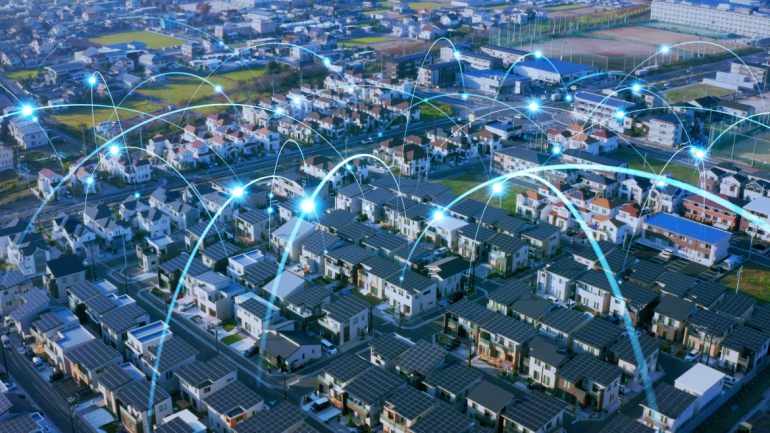Get ready for the Ubers and Airbnbs of energy.
Around the world the race is on to build a better battery.
“Battery storage is going to continue to decline in cost. In 5 or 10 years it’s going to be as cheap as rooftop solar is today. That means abundant distributed storage, which is a game changer,” says Simon Corbell, energy advisor and former ACT Minister for the Environment.
In countries like Australia, rooftop solar’s runaway success has delivered millions of so-called “prosumers” - people whose homes both consume and produce energy. As more prosumers have begun sending electricity back into the grid, the challenge has been storing it so it can be on call when the sun isn’t shining.
Battery breakthroughs could deliver millions more prosumers - including from a nascent group of electric vehicle owners taking up bi-directional chargers that can both draw power from the grid and return any unused power back into it. (LINK to storage piece)
In this world, says futurist Ross Dawson, any building or vehicle with a battery could become an independent energy entity, optimising usage to ensure it gets the best available price for energy.
“What happens when you get whole systems based on these independent entities negotiating with each other?” Dawson asks.
Before we get to this point, the discussion will shift to how much permission we want to give our energy provider to make decisions for us, says Martin Hauske, Asia Pacific Energy Segment Sales Leader at Nokia. “Am I willing to allow my utility to manage my refrigerator or my air conditioning?”
To date, most people haven’t embraced things like smart metering and apps to better understand their energy use. “We gave people a tablet, they looked at it once and then dumped it in a drawer,” Hauske says.
Intermediaries will make it simple
Tony Wood, energy program director at think tank the Grattan Institute, says we’ll see new businesses emerge whose job it is to manage our power use for us. The new Ubers or Airbnbs of energy.
“If you plug your car in, the system will decide the lowest price way to do that, but if you know you’ll need the car to pick up your child by 11, you can choose to pay more, tell the system and make the tradeoff - those things will become very routine, though they do depend upon very large amounts of data being exchanged.”
With that kind of data sharing a reality, prosumers will be emboldened to push for the regulatory and business change needed to make such services available to everyone.
“In the future if everybody has their own power plant we could connect and manage everything remotely, technology wise it's not a problem, but it's more what’s the business model, and what’s the regulatory situation,” says Hauske.
Equity, already an issue that sees some able to connect to the grid while others are priced out, could become even more acute in 2040.
Hauske says in Germany and Ireland the government set aside a frequency for public networks, with the aim of serving the public good.
Bjorn Sturmberg from the Battery Storage and Grid Integration Program at ANU says the equity implications of a prosumer-led energy world have caught the public’s attention.
“I still see electricity as something that should stay in the realm of a public good and an essential service, rather than have it slip into this individualised thing that you engage with for financial optimisation.”
Which is why, says futurist Ross Dawson, we’re likely to see a push towards far more localised energy networks. “There may not be energy utilities as we currently know them - instead a centralised system where you're negotiating not with an end utility but your next door neighbour.”
“It’s then not a top down governance of systems but trying to design the behaviour of individual entities to get the best overall efficiency.”
